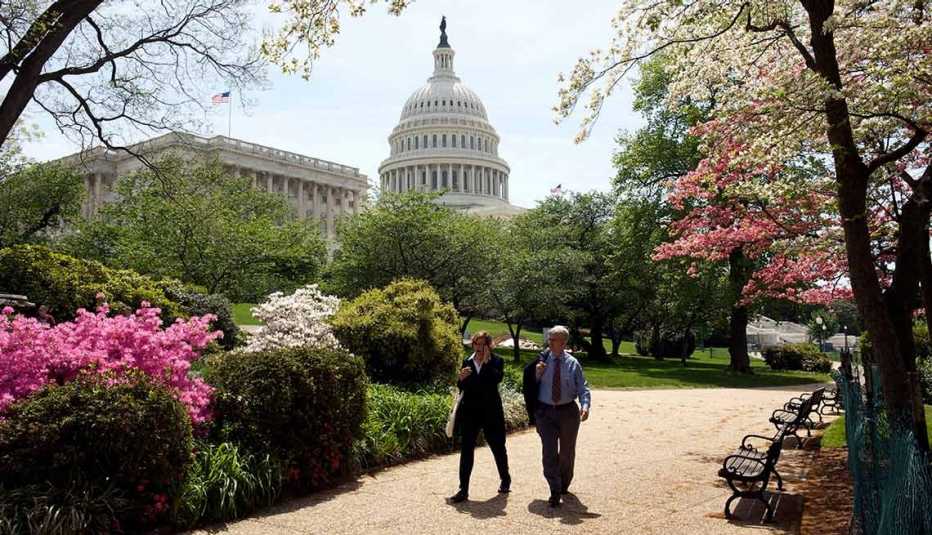AARP Hearing Center


Talk to practically anyone who has hunted for a job with the federal government, and he or she will tell you the hiring process can be painfully slow and bureaucratic. And, following the government shutdown and pay freezes last year, why would anyone want to work for Uncle Sam?
There are lots of good reasons to work in the public sector. This year, for example, the federal government is expected to hire around 95,000 new workers, up from 80,000 last year, and more openings are expected. Roughly a quarter of the 2.1 million federal civilian workers are now eligible for retirement, and as the economy improves, more workers may be headed for the exits.
When someone retires, "an agency doesn't automatically want to fill that with someone younger and less experienced," says Tim McManus, vice president for education and outreach for the Partnership for Public Service, a nonprofit that works to increase knowledge about federal careers. "They want someone who can hit the ground running."
Even if you don't live in or around Washington, D.C., or have no desire to, that's fine — as four out of five federal government jobs are based outside the nation's capital. In fact, more than 50,000 government employees work abroad.
See also: Why older Americans are working in Afghanistan
And consider this: Health and retirement benefits tend to be more generous than in the private sector, and there are ample opportunities for telecommuting and flextime at many agencies. Pay is competitive with the private and nonprofit sectors: Midlevel job wages can run from $50,000 to more than $100,000 a year.
The trick is to learn how to navigate the system. Here's how to start your government job search.
1. Follow your passion
The federal government is a colossal collection of hundreds of agencies and departments. Search for job openings by agency, job type, location or salary range on the USAJobs site. There's a smorgasbord of openings for people with a variety of skills and experience — from accountants, attorneys and architects to information technology (IT) workers, vendor management specialists and health care workers at agencies such as the National Institutes of Health (which came in first on AARP's 2013 Best Employers for Workers Over 50 list of companies and organizations that value an experienced workforce).
See also: Growing job fields
One way to cut through the clutter is to consider what matters most to you and where your know-how will best fit. If you're passionate about the environment, use that as a starting place to figure out what agency will be the most compatible for you. Look for openings at the Environmental Protection Agency (EPA), the U.S. Department of Agriculture (USDA) and other agencies dealing with environmental issues.
"When we talk to our 100,000-plus members about what they love most about their government job, it comes down to mission and a sense of purpose," says Steve Ressler, founder and president of GovLoop, a social networking and resource site for government workers. Learn about the various agencies by attending events sponsored by government-related associations such as the American Council for Technology and Industry Advisory Council (ACT-IAC), the Partnership for Public Service and the International City/County Management Association (ICMA), to name a few. You can also tap into government-related websites such as Government Executive.





























































More on work
10 Things to Do If You’re Worried About Layoffs
These steps can ease anxiety and help you find what’s next in your career
No Degree? That’s No Problem for These Jobs
Many of the positions offer flexible hours and opportunities to work from home
Still Working After Age 70? You’re Not Alone
Many older adults opt to build retirement savings while enjoying their jobs